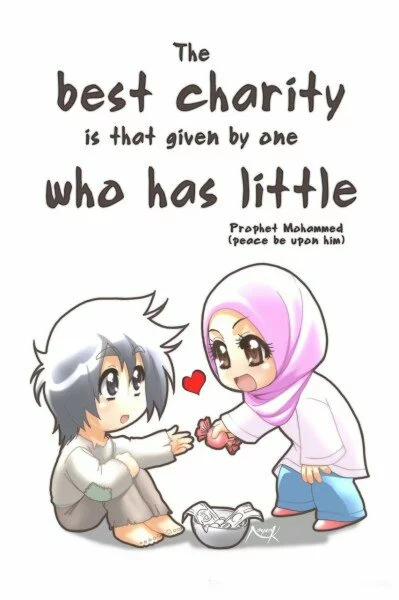THE concept of charity assumes new dimension in the blessed month of Ramadan, especially because the Holy Prophet Muhammad (peace be upon him) used to be most generous during this month.
Ibn ‘Abbas (May Allah be pleased with them) reported: The Messenger of Allah (PBUH) was the most generous of the men; and he was the most generous during the month of Ramadan when Jibril visited him every night and recited the Qur’an to him. During this period, the generosity of Messenger of Allah (PBUH) waxed faster than the rain bearing wind.
[Al-Bukhari and Muslim].
Imam Ahmad added to this narration, “And nothing he was asked for but he would give it.”
Furthermore, Al-Bayhaqi reported that ‘Aaishah, may Allah be pleased with her, had said, “When Ramadhan would start, the Prophet would release all prisoners of war and fulfill the need of every person who would ask him for something.”
Prophet Muhammad (peace be upon him) said: “Spend and don’t count lest Allah counts for you, and don’t hoard up lest Allah withhold from you. Spend what you can.”
If you keep strict account of your charity, Allah will also keep strict account of His gifts and wealth on you. This principle applies everywhere.
Abu Hurairah reported that the Messenger of Allah s.a.w said: “The Almighty Allah says: O son of Adam! Spend, you will then be spent for.”
You will be given wealth and rewards from the treasures of Allah, in case you give away in charity, because a cistern when vacated is usually filled up and that which remains filled up without consumption is not at all filled up. The Qur’an says: “And whatever thing you spend, it will be given in exchange.”
Abu Omamah reported that the Messenger of Allah s.a.w said: “O son of Adam! That you spend wealth is good for you and that you withhold it is bad for you, and you should not be backbitten for miserliness. Begin with those who are in you family.”
First of all, every man should provide the necessities to his family members and then there is the question of charity in case of surplus. In such a case, a gift to family members will bring greater rewards than a gift to strangers.
For Muslims the joy of giving in this holy month knows no bound. And it is during this month that the obligatory charity, called Zakat, is distributed to the poor and needy. It enables them to spend the fasting month in peace and comfort.
Spending out of whatever has been given to man stands for charity in a broad sense, i.e., for acts of benevolence to humanity in general. For what Allah has given to man is not only the wealth, which he possesses but all the faculties and power with which he has been gifted.
The most frequently recurring words for charity in the Holy Quran are ‘Infaq’, which means spending benevolently, ‘Ihsan’, which means the doing of good, Zakat which means growth or purification, and ‘Sadaqah’ which is derived from the root ‘Sidq’, meaning truth, and comes to signify a charitable deed.
Charity, in the sense of giving away one’s wealth, is of two kinds, voluntary and obligatory. Voluntary charity is generally mentioned in the Quran as ‘Infaq’ or ‘Ihsan’ or ‘Sadaqah’, and though the Holy Book is full of injunctions on this subject, and hardly a leaf is turned which does not bring to mind the grand object of the service of humanity as the goal of man’s life.
A charitable deed must be done as a duty which man owes to man, so that it conveys no idea of the superiority of the giver or the inferiority of the receiver. Love of Allah should be the motive of all charitable deeds, so that the every doing of them fosters the feeling that all mankind is but a single family. Only good things and well-earned money should be given in charity.
Charity has value only if something good and valuable is given, which has been honorably earned or acquired by the giver or which is produced in nature and can be referred to as bounty of Allah.
Charitable deeds may be done openly or secretly, although the latter form is better. Those who do not beg should be the first to receive charity.
Zakat is wealth which is taken from the rich and given to the poor, being so called because it makes the wealth grow, or because the giving away of wealth is a source of purification. In fact, both these reasons hold true.
It is however, true that the same stress has not been laid on this principle in previous religions, and, moreover the institution of charity, like every other principle of religion, has been brought to perfection, along with the perfection of
religion, in Islam.

